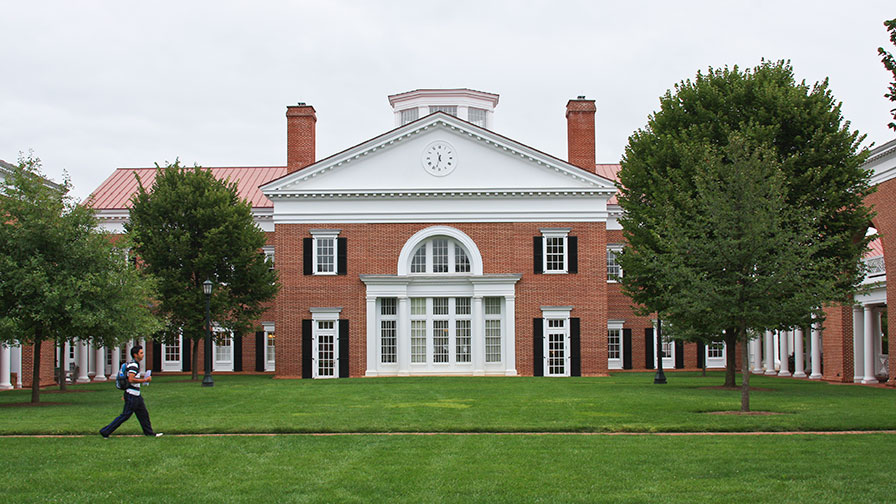
What Draws Entrepreneurs to a New Industry?
By Amy Halliday
Economic incentives, such as tax credits and rebates, are a favorite tool among policymakers looking to encourage entrepreneurial activity in areas that address social and environmental issues. But research by Jeffrey York and Michael Lenox published in Strategic Management Journal in December 2014 suggests another tool that may be even more effective.
In their paper “Exploring the Sociocultural Determinants of De Novo Versus De AlioEntry in Emerging Industries,” York (Ph.d. ‘10), a Batten Fellow and an assistant professor at the University of Colorado at Boulder, and Lenox, the Samuel Slover Research Professor of Business at the Darden School and the Academic Director of the Batten Institute, examined what drove startups and established companies across the U.S. to enter the green building supply industry. Using state-level data from 2000 to 2007, the researchers considered economic factors—the magnitude of the market opportunity and the presence of incentives, such as tax credits and rebates. They also looked at sociocultural factors, including the strength of social movements and norms that promote environmental sustainability. Their study is the first to explore the relative impact of sociocultural factors on startups and incumbents.
York and Lenox found that economic factors, although important for both groups’ decisions to enter this emerging industry, were more important for the incumbents. Sociocultural factors were also important for both groups but were much more of an influence on a startup’s decision to enter the industry. The differential between the startups and the incumbents was larger when it came to the sociocultural influence.
Whereas economic opportunity seemed to “pull” incumbents to enter this new field, York and Lenox note, entrepreneurs were more influenced by the “push” of social norms. It could be that aligning with a social cause—in this case, the “green” movement—helped a young firm build an identity and gain legitimacy. Incumbents, however, may have long-established identities that undermined their attempts to diversify into this new industry. They needed clear evidence of economic opportunity and incentives. Indeed, this finding has strategic implications for startups. As York and Lenox note, entrepreneurs may be able to avoid direct competition with incumbents by looking to enter areas where the economic incentives are uncertain.
This new paper builds on earlier research by Lenox and York that also considered levers that can influence the direction of innovation and entrepreneurship. The earlier research, based on the same data from the green building industry, explored the adoption of the Leadership in Energy and Environmental Design (LEED) rating systems, introduced in 2000 by the U.S. Green Building Council to encourage the design and construction of buildings that promote energy efficiency, incorporate green building materials, and protect occupants’ health.
York and Lenox found that government-provided economic incentives could not alone explain the increase in green building projects in a given state. Instead, the presence of private actors, such as consultants and entrepreneurial firms, showed a strong positive correlation with the number of LEED projects.
The researchers’ recent paper also suggests that economic incentives may not be enough to encourage the kind of entrepreneurial activity that can address environmental problems. “If we’re interested in increasing entrepreneurial entry into clean technology and sustainable energy,” Lenox said, “there might be another lever beyond economic incentives. Policymakers might want to figure out which regions already have strong environmental movements and then concentrate their efforts in those areas.”
The University of Virginia Darden School of Business prepares responsible global leaders through unparalleled transformational learning experiences. Darden’s graduate degree programs (MBA, MSBA and Ph.D.) and Executive Education & Lifelong Learning programs offered by the Darden School Foundation set the stage for a lifetime of career advancement and impact. Darden’s top-ranked faculty, renowned for teaching excellence, inspires and shapes modern business leadership worldwide through research, thought leadership and business publishing. Darden has Grounds in Charlottesville, Virginia, and the Washington, D.C., area and a global community that includes 18,000 alumni in 90 countries. Darden was established in 1955 at the University of Virginia, a top public university founded by Thomas Jefferson in 1819 in Charlottesville, Virginia.
Press Contact
Molly Mitchell
Associate Director of Content Marketing and Social Media
Darden School of Business
University of Virginia
MitchellM@darden.virginia.edu





